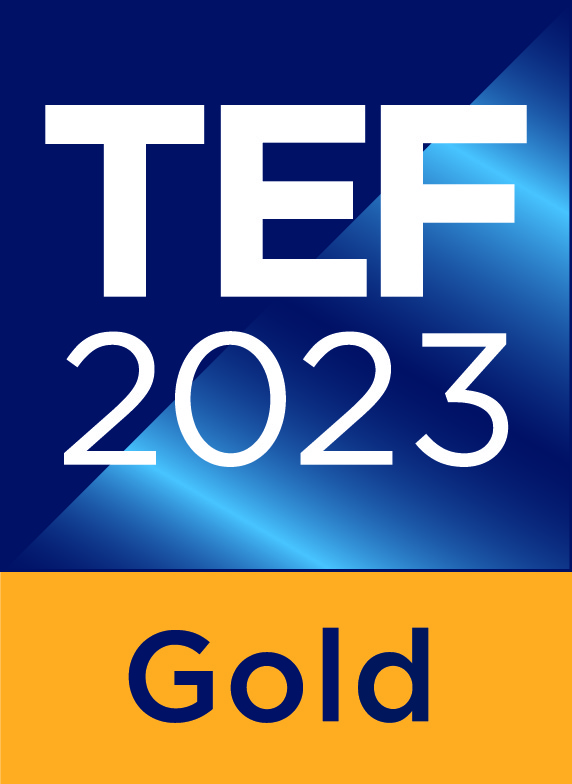What is the Teaching Excellence Framework (TEF)?
The Teaching Excellence Framework (TEF) is a national scheme run by the Office for Students (OfS) that aims to encourage higher education providers to improve and deliver excellence in the areas that students care about the most: teaching, learning and achieving positive outcomes from their studies.
The TEF does this by assessing and rating universities and colleges for excellence above a set of minimum requirements for quality and standards.
Universities and colleges that take part in the TEF receive an overall rating as well as two underpinning ratings – one for the student experience and one for student outcomes.
The ratings reflect the extent to which a university or college delivers an excellent experience and outcomes for its mix of undergraduate students and across the range of its undergraduate courses and subjects.
How are the TEF ratings decided?
The TEF is a desk-based, expert review exercise. The TEF panel, which is made up of independent academics and students who are experts in learning and teaching, conducted the assessments and made the decisions about ratings.
The panel considered a combination of evidence sources: evidence submitted by the provider, evidence submitted by its students (where available), and numerical indicators the OfS produces from national datasets.
What does Imperial’s rating mean?
Imperial received an overall Gold TEF rating, meaning that the student experience and student outcomes were judged to be typically outstanding by the panel. This overall rating was made up of two underpinning ratings, one for student experience and one for student outcomes.
Student experience: Imperial received a Silver rating, meaning that the student experience is typically very high quality.
Student outcomes: Imperial received a Gold rating, meaning that student outcomes are typically outstanding.
These ratings were awarded in 2023, for four years.
What documentation is being published?
Below, you can download the summary panel statement from the OfS, as well as the full provider and student submissions submitted by the College and the Imperial College Union, respectively. Please note that in the submissions the OfS has redacted those parts which could identify individuals.
Notes
Summary TEF 2023 panel statement
Please note the following:
i. During the TEF period, Imperial College Business School did not offer full BSc undergraduate degree programmes. It has partnered with departments to provide a joint honours degree with a one year ‘Year in Management’ component, a one-year Intercalated BSc for medical students, and business and management modules to science and engineering students. The Business School has offered full BSc undergraduate degree programmes from 2023-24.
https://www.imperial.ac.uk/business-school/undergraduate
ii. Due to a change in data collection at the Higher Education Statistics Agency (HESA), ethnicity data for non-UK domiciled students was not returned in the 2021-22 HESA student return, and in future returns. As Imperial has a very high proportion of International students, this has meant that a large percentage of students are not represented in HESA’s ethnicity data. This data is held internally at Imperial and continues to be monitored.
iii. Imperial offers full-time undergraduate provision only. However, full-time students can transfer to part-time provision due to extenuating circumstances. Historically, this has applied to a very small number of students (typically less than five in any academic year).
TEF 2023
